5 things that road cycling could learn from the World Championships you've never heard of
Is it a case of adapt or become irrelevant for road cycling?
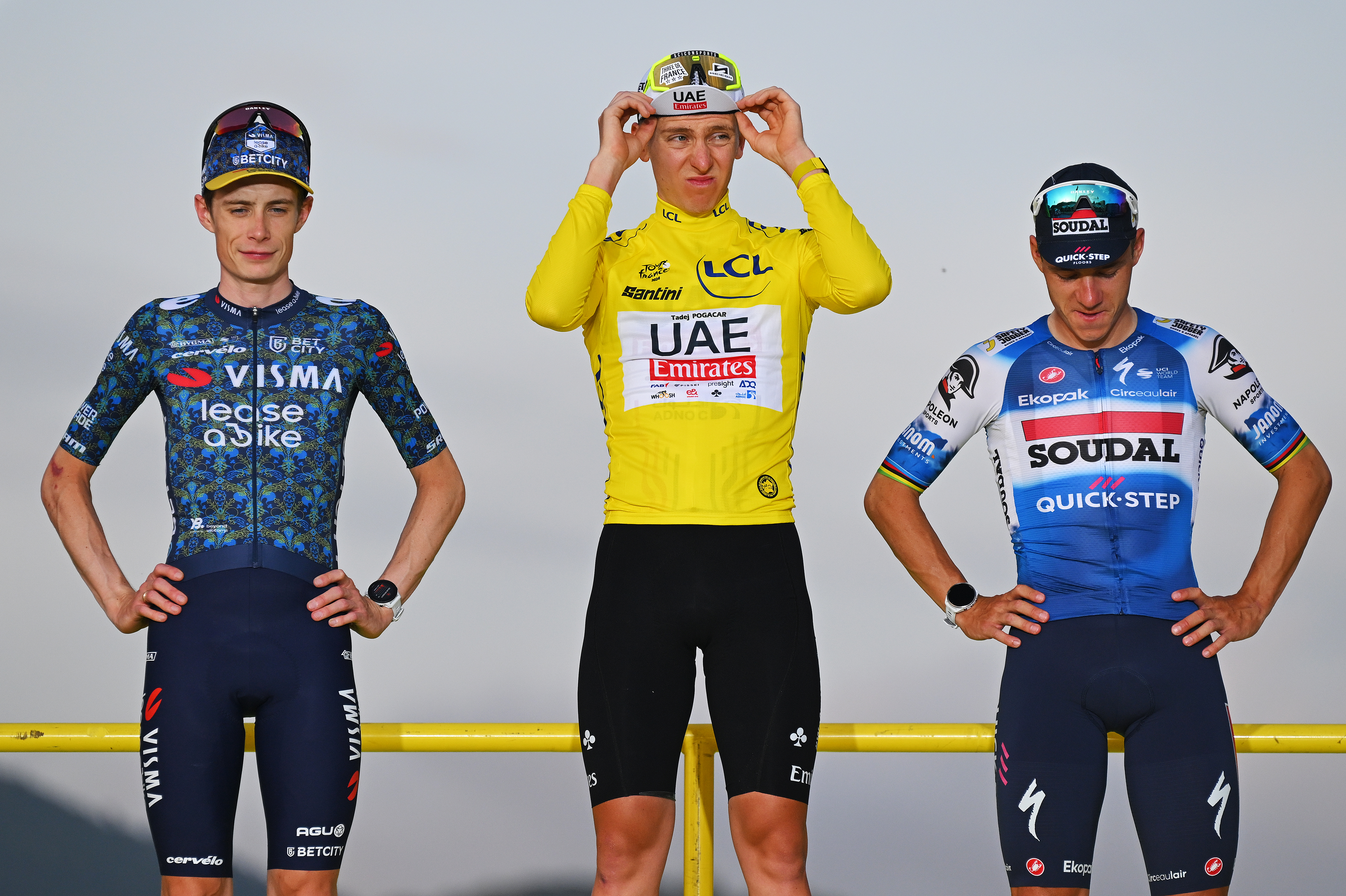
The latest race content, interviews, features, reviews and expert buying guides, direct to your inbox!
You are now subscribed
Your newsletter sign-up was successful
I spend most of the year traveling between the biggest road races in the world but having spent the weekend at the 2025 UCI Esports Cycling World Championships, I think there’s a thing or two that the road calendar could learn from the increasingly popular virtual world…
It’s not an arms race
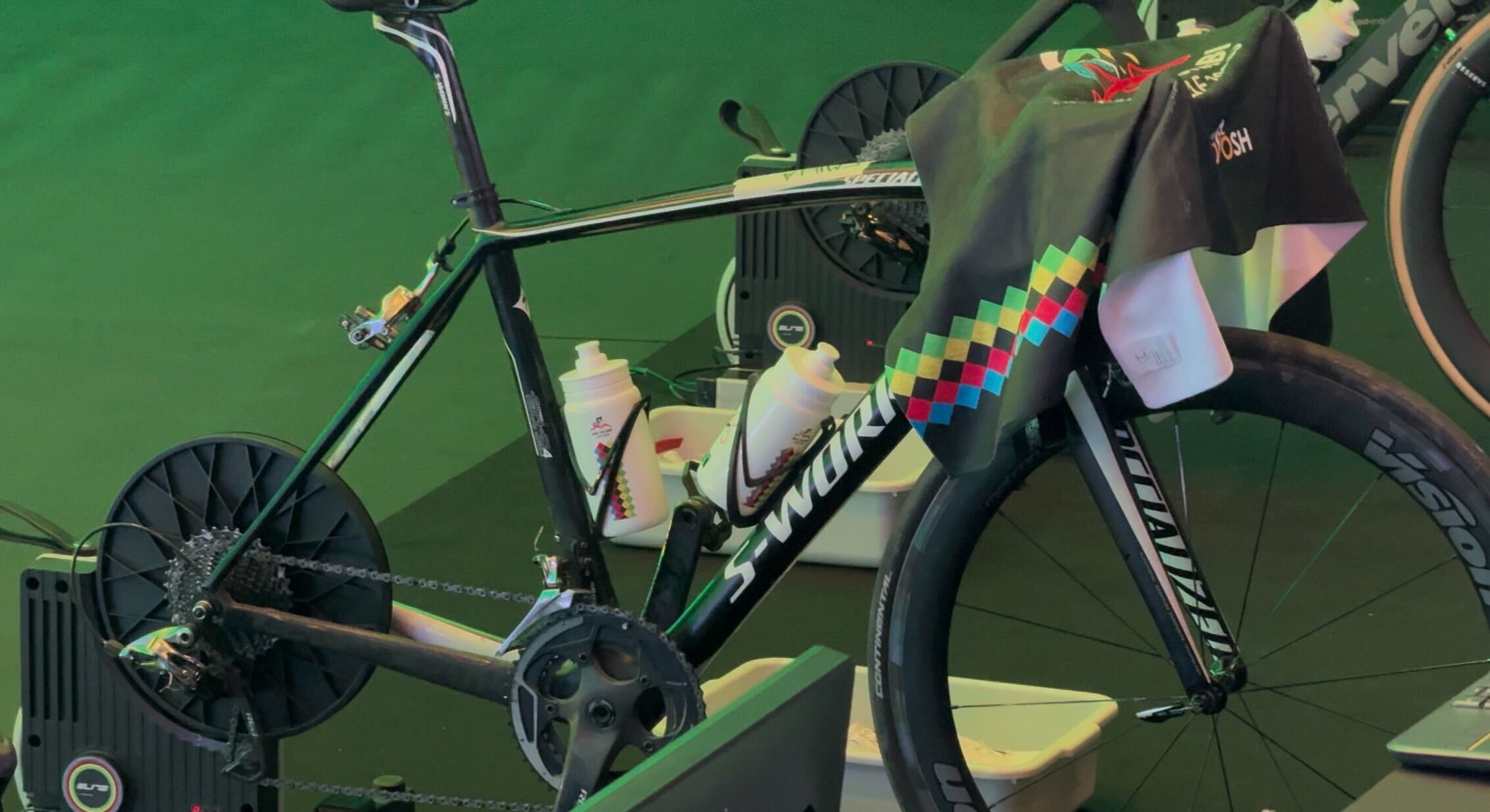
Big budget teams win big prizes, that’s just the way it is on the road and it’s not just a case of hoovering up the best riders. To compete at the highest level you need a lot of cash. For example, Remco Evenepoel’s dominance in time trials isn’t just down to his legs, but also a very expensive bike and many hours spent in a very expensive wind tunnel to optimise his position.
It’s the same on the track, so much so that a cost cap similar to F1 is being introduced to prevent wealthier nations such as Australia, Team GB and Japan from gaining an advantage which is out of reach for many of the lower budget nations and competitors.
Compare that to the Esports Cycling World Champs and things couldn’t be more different. I spotted just three team bikes for example. The rider’s accommodation and transport is paid for by event organisers MyWhoosh, and the equipment such as smart trainers and fan are provided by Elite. As for the bikes, well, I haven’t seen that many rim-brake bikes in one place for a good 5 years or so.
In fact, many of the bikes feature fairly low tier stems and handlebars, decade old frames are commonplace and front wheels that you could find on an online marketplace for less than the price of the bearings in the World Tour substitute. Why is this the case? Well, the bike makes next to no difference, as long as the gearing is working and to the rider’s taste then concepts such as aerodynamics, weight and frame compliance fade into the inconsequential.
The strongest rider more than often wins...
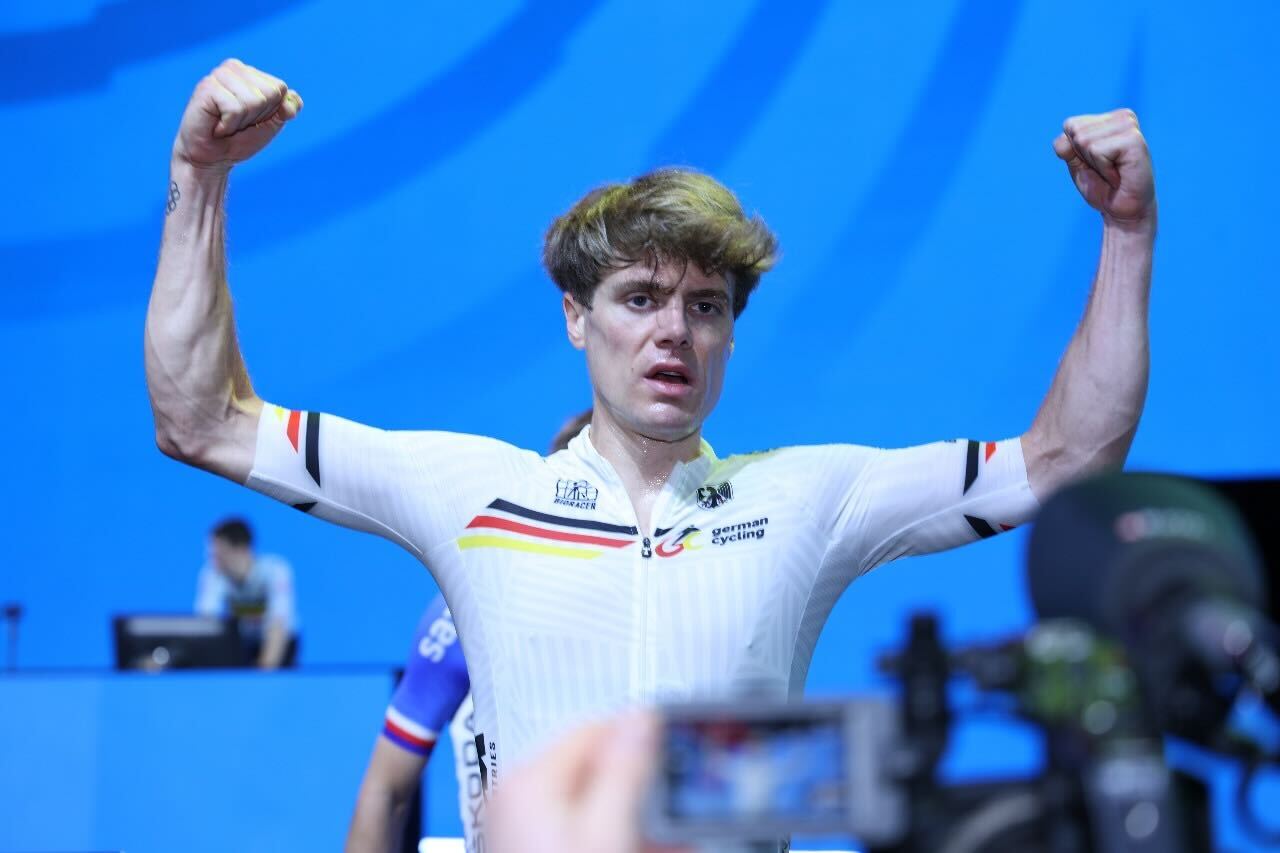
Part of the thrill of road racing is that literally anything can happen - a puncture, an untimely crash, an ill-positioned camera motorbike or sometimes even riders being sent the wrong way. Exciting for the fans, yes, but is it fair? Fairness doesn't really come into it. How many victors have we been robbed of due to ill fate over the years? Would Mads Pedersen have a Paris-Roubaix title to his name, for example? We’ll never know.
At this year’s UCI Esports Cycling World Champs it’s almost impossible to argue that the two strongest riders didn’t win. Jason Osborne in the men’s and Mary Kate McCarthy in the women’s dominated their respective categories and they had the platform on which to prove their superiority to the world. No tacks, over-enthusiastic fan with a flag or potential landslide could prevent it. Can the same be said for road racing?
The latest race content, interviews, features, reviews and expert buying guides, direct to your inbox!
It’s far more spectator friendly
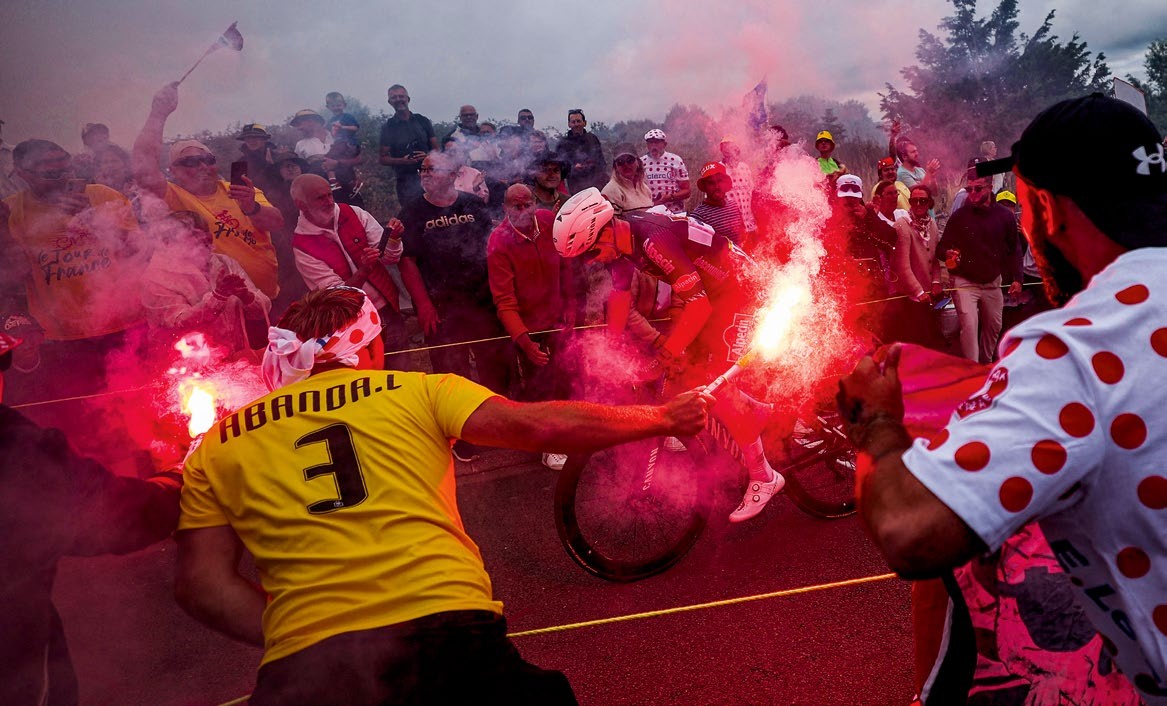
I love watching road racing; I'm lucky enough to work in an industry where I can generally have it on in the background and (kind of) call it work but I’m all too aware that I’m in the minority and that cycling has a looming audience problem.
Millions tune in for the Tour de France but where are these ‘fans’ the rest of the year? Why are more and more cycling races being pulled from free-to-air platforms? The truth is, many cycling supporters are watching the YouTube highlights in the evening rather than six hour stages.
A good example of this is my favourite road race on the calendar, Milan-San Remo, the first and longest monument of the season, with a length of 297km. The fastest riders will complete this at break neck speeds of just over six hours, but how much of it is worth watching? Well, 99% of the action is almost guaranteed to happen in the last 30 minutes.
Compare that to the Esports Worlds and there were three stages for both the men and the women, with each trio of races taking under an hour to complete.
In this time, there’s points up for grabs literally every minute or so and the whole thing is streamed for free on YouTube. With diminishing attention spans I think road cycling is going to have to adapt to retain audiences and the Esports model has a lot of positives.
Whether this is an increased number of intermediate sprints counting towards GC times, shorter more intense races or more transparency of heart rate and power data, I don’t know, but there’s some exciting ideas that road cycling could borrow.
Equal race distances and prize money
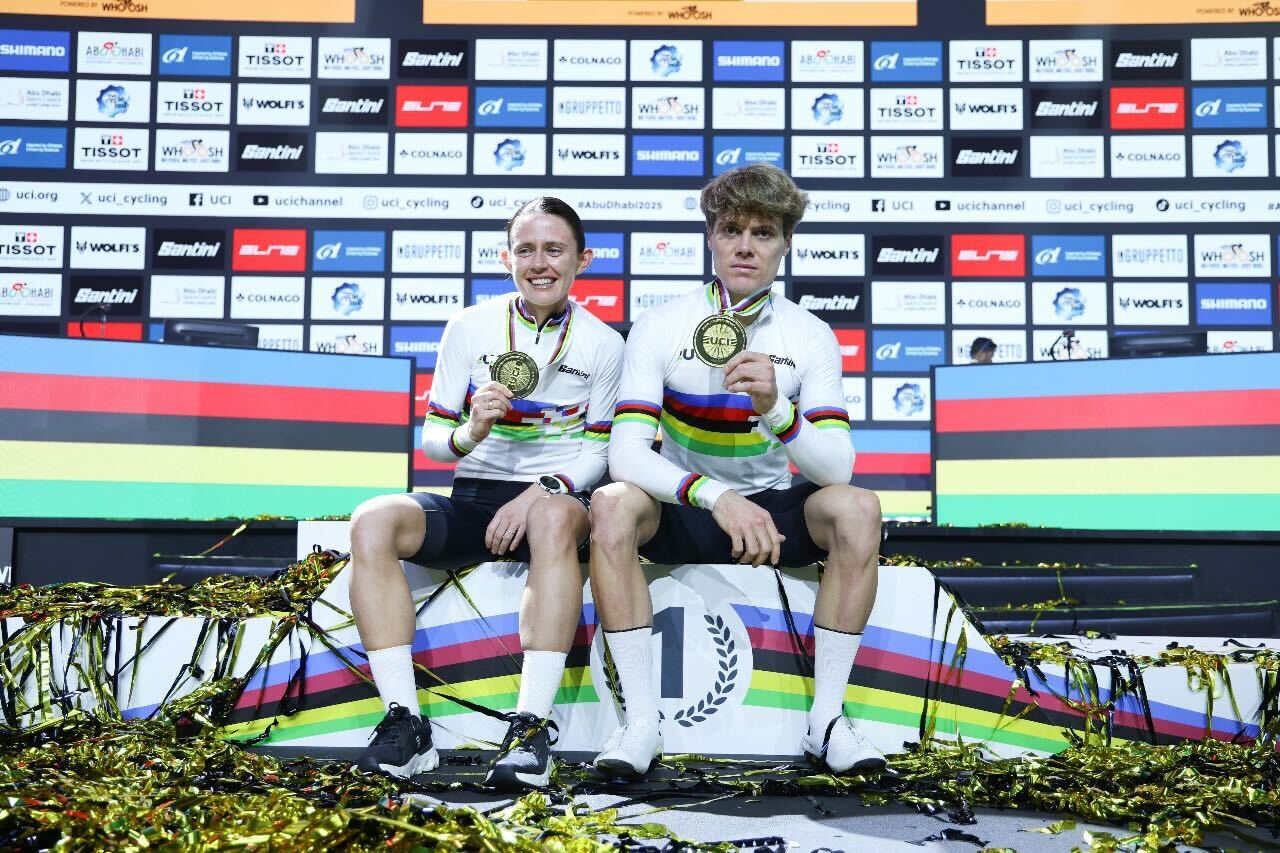
Controversial I know… I’ve read the comments on Facebook from the last article we wrote about this. The Esports Worlds featured identical stages for the men and women bar a slight difference in pace of the chase line in Stage 1. The prize money was also identical, just as it is for MyWhoosh’s Sunday Race Club races.
Equal prize money and race distances is rarely the case in professional road cycling as well as major races happening at different times of the year for each gender. The indoor cycling model meant that the men’s race was immediately after the women’s with each benefitting from the increased fan base and atmosphere.
On the road, people camp out from early morning to secure the best spots. How cool would it be if these fans got to see twice the action on the same day? I wouldn’t mind betting it would open a lot of eyes to how exciting races from both genders can be. This might happen at some races, like the Tour of Flanders, but why not more?
It’s far more likely to find hidden future talent
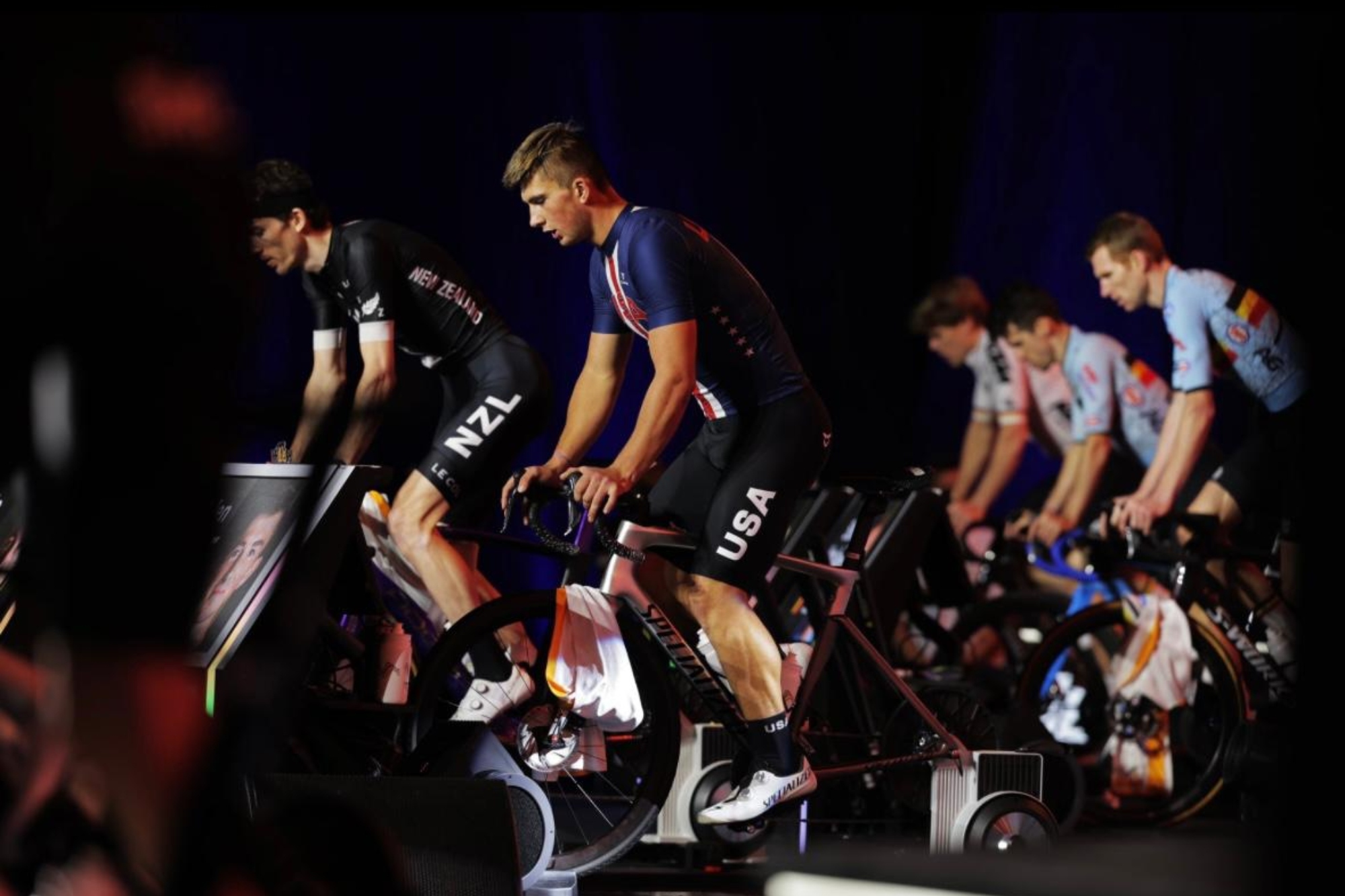
Anyone can qualify for these Worlds. You don’t need to belong to a team, you don’t need to be a known name, you just need an indoor trainer and a WiFi connection. This year’s edition had an allocation of spots for national governing bodies and then up to 40 slots for public qualification. Where else can you battle it out with the best as a completely unknown cyclist?
Road racing has been dominated by European riders since its inception, that’s where the majority of the teams are after all, but there’s just as much talent from other continents waiting to be discovered and road cycling isn’t doing enough to find it. Esports adds another pathway to a pro-contract. Win the Worlds, whatever the format, and people are going to take notice.
Keen racer Jamie is in charge of the video content on Cycling Weekly. From a family of cyclists, he has a masters degree in mechanical engineering so he loves the tech side of cycling. He's a regular competitor in local races and even manages a racing team!
You must confirm your public display name before commenting
Please logout and then login again, you will then be prompted to enter your display name.